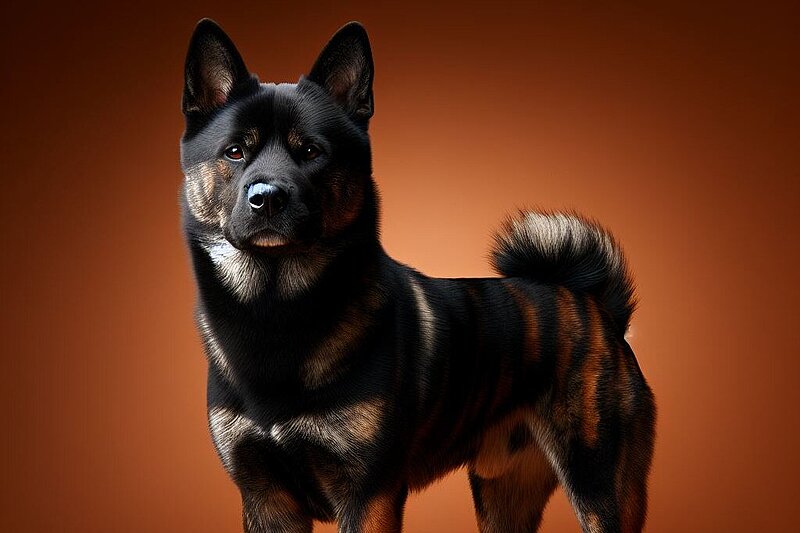The Kai Ken: A secret from the mountains of Japan
History of the Kai Ken dog breed: A legacy of the Japanese mountains
The Kai Ken originates from the mountainous regions of Yamanashi Prefecture in Japan and was originally bred for hunting. Historically, hunters in this region used Kai Ken dogs to track and retrieve wild boar and deer. The isolated mountains allowed this breed to preserve its unique characteristics for centuries, making it a true treasure of Japanese cynology. The Kai Ken breed was recognized as a "Monument of Nature" in Japan in 1934 and has since slowly made its way into the hearts of dog lovers worldwide.
Who is the Kai Ken suitable for?
The Kai Ken is not necessarily a beginner's dog, as it needs an experienced owner who knows how to channel its energy and intelligence. This breed is ideal for active people or families who spend a lot of time outdoors and are willing to spend a lot of time with their dog. The Kai Ken is an excellent companion for athletes, hikers and nature lovers.
Character: A loyal and intelligent companion
The Kai Ken is characterized by its intelligence, loyalty and independent spirit. These dogs are extremely alert and show a strong bond with their family. Despite their hunting roots, they are generally gentle and can be good with children if properly socialized. Their intelligence means they are quick learners, but also need mental challenges to stay happy and balanced.
Appearance: An eye-catcher with tiger stripes
The Kai Ken has a striking appearance, characterized by its brindle (tabby) coat. These tiger stripes can appear in various shades of color, from black to red to brindle gray. The Kai Ken is a medium-sized dog with a strong, muscular build and a typical shoulder height of 45 to 55 cm. The weight is usually between 14 and 18 kg.
Grooming: less is more
Grooming the Kai Ken is relatively easy as its coat requires little care. Regular brushing once a week is enough to keep the coat clean and healthy. During the shedding season in spring and fall, it may be necessary to brush more frequently to remove loose hair. Ears should be checked regularly for signs of infection and teeth should be brushed regularly to prevent dental problems.
Health: Robust and resilient
The Kai Ken is generally a healthy and robust breed with a life expectancy of 12 to 15 years. There are no specific genetic diseases that are common in this breed, but as with all dogs, it is important to pay attention to a balanced diet and regular veterinary check-ups to detect health problems at an early stage.
Exercise and training: staying fit and active
Kai Ken is an active dog that needs plenty of exercise and mental stimulation. Daily long walks, running or cycling tours and games in the garden or park are ideal to keep this energetic dog busy. Due to his strong hunting instinct, Kai Ken should be kept in safe areas or on a lead, unless he is very well trained and obeys reliably.
Training: Consistency and patience
The Kai Ken responds well to consistent and positive training. He needs a patient owner who sets him clear rules and boundaries, but is at the same time sensitive and loving. Early socialization is crucial to ensure that Kai Ken gets along well with other dogs, animals and people. Training methods based on positive reinforcement are particularly effective with this intelligent breed.
Behavior and interaction: Friendly and alert
Kai Ken dogs are known for their friendly and loyal nature towards their families. They are alert and have a natural protective instinct, which makes them good watchdogs. They are usually patient and gentle with children, provided they have been properly socialized. They can get along well with other dogs and pets, but again, early socialization is important to avoid unwanted behaviour.
Recognition by the FCI: An officially recognized treasure
The Kai Ken dog breed is recognized by the Fédération Cynologique Internationale (FCI) and is listed in Group 5 (Spitz and primitive type dogs) under Section 5 (Asian Spitz and related breeds). This official recognition confirms the importance and uniqueness of this Japanese breed.
